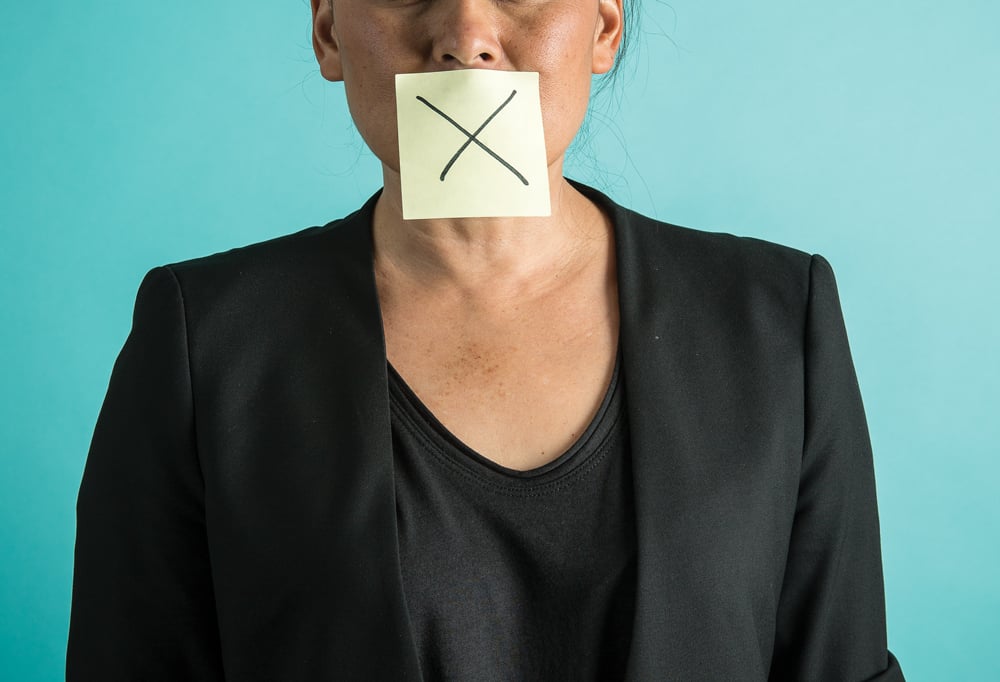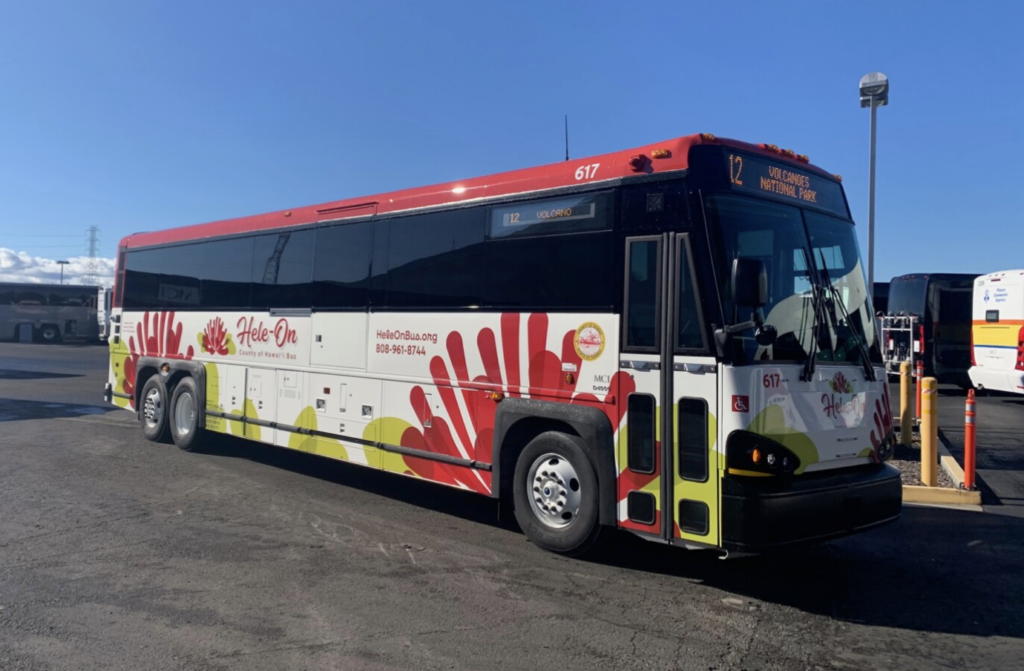Workers: Know Your Rights

There are many myths and misunderstandings about employment rules and regulations. Here’s our guide to workers’ rights and employers’ obligations, but please take note: We are not lawyers and this guide is no substitute for legal counsel.
In many ways, there is no better place to be a worker than Hawaii.
In 1974, Hawaii became the first state to require companies to provide health insurance for eligible employees working 20 or more hours per week. The state leads the other states in the number of protected classes against workplace discrimination. It is one of just a handful of states that require employers to have temporary disability insurance for employees, including pregnant employees. And state laws define “family” more expansively than federal laws (take our quiz on page 41 to learn the broader state definition).
Nelson Befitel, chief counsel at ProService Hawaii and former state labor director, says Hawaii not only got broad healthcare coverage decades before Obamacare, but, “To this day, our required plans are richer than those required under the Affordable Care Act and the premiums we pay are not as costly as on the Mainland.”
On the flip side, workers often think they are entitled to more than they are, says John L. Knorek, management and employment attorney, and director at the law firm of Torkildson, Katz, Moore, Hetherington & Harris. “People think they have a right to holiday pay, vacation and sick leave, but, in fact, they really don’t,” he says. “These are discretionary benefits that employers can decide to pay.”
So here is our guide to your rights as a worker in Hawaii.
Are You Really an Employee, Not an Independent Contractor?
As companies try to reduce costs and increase flexibility, they use more independent contractors rather than hire additional employees. But a 2000 study for the federal Department of Labor found that between 10 and 30 percent of audited employers were misclassifying their workers; the study said people who should have been classified as employees according to federal regulations were actually being treated and compensated as independent contractors.
“Some employees may be intentionally misclassified as a means to cut costs and avoid compliance with labor laws,” says Min Kirk, assistant district director of the U.S. Department of Labor’s Wage and Hour Division.
Why does this matter? By law, companies must provide employees with benefits such as the minimum wage, 40-hour work week, workers’ compensation, and family and medical leave that are not required for independent contractors. Governments also lose revenue: For instance, a 1994 study by Coopers and Lybrand estimated the federal government would lose $3.3 billion in Social Security, Medicare and other tax revenue in 1996 based on such misclassifications. Misclassification also results in an uneven playing field for employers who properly classify their workers.
“Combatting misclassification requires a multipronged approach. The Wage and Hour Division currently has agreements with 25 states as well as the Internal Revenue Service to jointly combat misclassification,” Kirk says.

Photo: Aaron K. Yoshino
While there is no definitive test or single bulletproof question that determines whether you are an employee or independent contractor, the Wage and Hour Division considers six areas to decide a worker’s status:
1. How integral is your work to the core offering of the business? For example, are you a carpenter working at a construction company, or an attorney working at a law firm that claims your work as its own? The more integral your work, the more likely you should be considered an employee.
2. Can you make independent business decisions, such as hiring your own helpers, or advertising for other work? The more control you have, the more likely you should be considered a contractor.
3. Are you making substantial, unreimbursed investments to sustain your business beyond the specific job you are performing for the employer? If so, this may suggest you should be considered a contractor.
4. Are you exercising independent business judgment or initiative? If so, this may suggest you should be considered a contractor.
5. Are you hired with the expectation that your work will continue indefinitely? If so, this may suggest you should be considered an employee.
6. How much control does your company exert in terms of how your work is performed, the process for getting it done, and when and where you do it? The more control the company has, the more likely you should be considered an employee.
For more information, visit tinyurl.com/h3cfyx5 or call 866-4USWAGE (487-9243).
If it is still unclear whether you have been misclassified, you can fill out Form SS-8, Determination of Worker Status for Purposes of Federal Employment Taxes and Income Tax Withholding, which the IRS reviews to officially determine a worker’s status. The form is at tinyurl.com/gr95hml.
Common Myths
Often, workers in Hawaii think they have a legal right, but they don’t. Here we separate fact from fiction.
Myth: Family medical leave law gives me paid time off to recuperate or care for loved ones.
Fact: Family medical leave allows you to take unpaid time off for a pregnancy or serious medical condition, or to care for a newborn or sick family member. You retain your health insurance benefits during such leave, but the law does not require employers to pay you.
Learn more from the federal Department of Labor at tinyurl.com/famleave.
Myth: A company can let me go because I’m having a difficult pregnancy and need time off.
Fact: Hawaii law says employees cannot be penalized because they require time off work on account of a disability resulting from pregnancy, childbirth or related medical conditions.
Myth: I’m not allowed to breast feed my baby at work.
Fact: An employer may not fire, refuse to hire, withhold pay from, demote or penalize an employee for breast-feeding at work. In addition, breast-feeding mothers have the right to reasonable break times to pump breast milk for children one year and younger in a place other than the restroom, shielded from view and free from intrusions.
Myth: I can’t get fired without a reason.
Fact: Hawaii is an “at-will” state when it comes to employment. This means either the employee or company can end the employment relationship with or without cause and with or without notice. The exception to this is if the dismissal was based on discrimination of a protected class. (See our quiz answers on page 41-42 for a list of protected classes.)
Myth: If I have an arrest on my record, a company can use that as a reason to not hire me.
Fact: An employer cannot discriminate against someone if they have been arrested in the past, unless they were convicted and the conviction bears a rational relationship to the duties and responsibilities of the job. For instance, a theft or fraud conviction may mean you can be excluded from jobs handling money.
Furthermore, after you are hired, if you break the law in a way that relates to your job duties – for example, you drive at work and are convicted of a DUI on your own time – you can be fired.
Myth: Everyone with a job is entitled to health insurance
Fact: Only employees who work four consecutive weeks at 20 or more hours per week are entitled to be enrolled in employer-paid health-care insurance. If employees drop below 20 hours even one week in a month, they can be removed from health-care coverage and will need to re-qualify. Exception: If they drop below 20 hours for medical reasons.
Myth: I’m entitled to holiday pay and sick pay.
Fact: Pay for holidays and sick leave are not required under federal or state laws. When employers provide these benefits, they are voluntary or part of a collective bargaining agreement.
Myth: After I leave a company, my health care will be covered until the end of the month.
Fact: An employer can end health care on the last day of work.

Photo: Aaron K. Yoshino
Myth: My freedom of speech is guaranteed at work.
Fact: Your freedom of speech at work is not absolute. For instance, employees who engage in racist or sexist comments can be disciplined based on discrimination and harassment policies. Comments made outside of work or on social media that affect the company or other employees can also be subject to discipline.
Myth: If I see something unlawful at work, I should not report it because I could lose my job.
Fact: There is no question people have been fired for doing just that, but Hawaii’s Whistleblower Protection Act protects employees if they report a suspected violation of a statue or regulation at their workplace. Employers are prohibited from punishing such employees with a demotion, suspension, reassignment or other adverse action.
Myth: Internships mean free labor for employers.
Fact: The federal Department of Labor allows for very limited situations in which a person can work as an unpaid intern. For someone to be properly categorized as an intern, the employer must not be able to derive any immediate benefit from his or her activities. In other words, the intern should be there only to learn and not to do work in place of a paid employee. It’s true that many companies do use unpaid interns as free labor, but be warned: Courts have imposed penalties of millions of dollars for such violations and the federal government says it is cracking down on them.
Learn more about federal intern rules at tinyurl.com/internrules
Myth: My boss can’t make me use my personal equipment on the job.
Fact: Companies can require employees to use their own equipment. For instance, it is standard in the construction and auto repair industries for employees to provide their own tools. Likewise, employers may require employees to take work calls and be available on their mobile phones.
Myth: It’s the employer’s decision whether I’m an employee or contractor.
Fact: Companies sometimes misclassify people as contractors when they meet the criteria for being employees. The criteria used to make the determination include what kind of control the employee exerts, whether the service performed is core to the business, and whether the worker conducts these services for other companies. If someone has been found to be misclassified, it could result in back pay and benefits for the worker, and fines and penalties for the business.
Qualifier: There are exceptions to some labor rules, often for small companies. For instance, the state regulation requiring “a location, other than the restroom” for breastfeeding “shall not apply to any employer who has fewer than 20 employees if the employer can show that the requirements would impose an undue hardship by causing the employer significant difficulty or expense in relation to the size, financial resources, nature or structure of the employer’s business.”
Essential Steps
Sometimes, workers need to take the proper steps to ensure they get what’s due to them, whether it is workers’ compensation payments or protection from discrimination.
Attorney Dennis W.S. Chang has been representing workers for four decades and has seen cases in which people lose their workers’ compensation benefits because they did not know what they needed to do.
“One of the first things people need to do if they have been injured on the job is to write out an incident report of the injury, and see if there were any witnesses,” he says. “They need to report it as soon as possible. If they need medical care, they should go to the doctor right away, report it as a work injury and get the doctor’s confirmation. Having those two elements would go very far in alleviating worries on both sides – the employer’s side as to whether this is a bogus claim, and the claimant’s side in terms of having essential evidence.”
Chang adds, “If all people were told they needed these things, that would go a long way toward alleviating the amount of litigation and adversity we face today.”
Hawaii Civil Rights Commission executive director William Hoshijo also urges people to keep good records of any incident. “If they have been harmed by discrimination, they should try to document the harm they suffered, with whatever records they can keep,” he says. “Ultimately these cases rest on the facts, and it’s good to keep a chronology, so people will be able to recall the time frame for when things happened.”
Hoshijo knows that it is a sensitive issue. “People don’t want to complain about every little thing and look like complainers, and in some instances, it may be futile to complain,” he says. “But sometimes complaints are addressed. Not every case results in a finding that there’s been unlawful discrimination. But if people don’t come forward, change can’t occur.”
Anyone who feels discriminated against can contact the Hawaii Civil Rights Commission at 586-8636 or dlir.hcrc.infor@hawaii.gov, or the U.S. Equal Opportunity Commission at 800-669-4000 or info@eeoc.gov.
Hawaii Civil Rights Commission
labor.hawaii.gov/hcrctwo-waycommunication
Donna Jones, client HR manager at ProService Hawaii, encourages people to speak to their superiors if they think something is wrong.
“If you feel you weren’t treated fairly or something is not right, you should always ask why something happened in order to get clarification. Sometimes miscommunication is the biggest issue,” she says.
To take advantage of their rights, says employment attorney John L. Knorek, workers need to be forthcoming. “Employees forget communication is a two-way street,” he says. “For employers to provide the things you are legally entitled to, you need to let them know what’s going on. For example, you need to let them know that you have a sick parent or kid if you need time off. That way, employers can ensure that any absences are protected and covered.”
Attorney David F. Simons reminds employees of their right to speak up if they see something illegal happening. “Let’s say you make a report to OSHA of an unsafe workplace practice. Your employer knows it was you who caused OSHA to come in and fine them. Then all of a sudden you get fired. That’s is a violation of the whistleblower protection laws. We don’t want people to feel jobs are at risk if they are simply asking employers to follow the law.”
Be Akamai
Sherry Menor-McNamara, president and CEO of the Chamber of Commerce Hawaii, suggests that workers be proactive.
“We strongly recommend that people check in with their employers whenever they have questions. If there is an HR person, check in with that person. If there isn’t one, check in with your owner,” she says.
“Look at government resources, such as the website for the Department of Labor. … Look at the posters that should be in your workplace with information on minimum wage and regulatory issues. Together, with your employer, you can help promote a positive work environment.”
Bill Kuntsman, the spokesman for the state Department of Labor and Industrial Relations, encourages people to look up the laws on the department’s website, labor.hawaii.gov. If they find the language difficult to understand, “People can call or email our department anytime, whether it’s about unemployment, overtime, workers’ comp or temporary disability insurance. One of our functions here in the director’s office is to refer people to the right program,” he says. Call 586-8844 or email dlir.director@hawaii.gov.
To Learn More About Federal Labor Laws
www.dol.gov and 866-487-2365.
Long History
“Historically speaking, Hawaii has been very progressive in terms of worker rights,” says Randy Perreira, president of Hawaii AFL-CIO. “Since the political landscape of the 1950s here, we’ve been liberal in terms of the kinds of rights that workers are entitled to.”
Department of Labor and Industrial Relations spokesman Bill Kuntsman credits unions with leading the way. “Hawaii has had a strong labor movement. The enactment of temporary disability insurance, the Hawaii Prepaid Health Care act of 1974 and civil rights laws – all were labor rights priorities in the ’60s and ’70s. … A lot of newcomers are not aware of the role labor has played in how our laws came to be the way they are.”
Menor-McNamara attributes some of Hawaii’s progressiveness in the workplace to local culture. “In Hawaii, we have a strong sense of community spirit. Because of that, employers tend to be proactively aware of workers’ rights, seeking to promote them. We have a culture of wanting to take good care of our employees,” she says.






